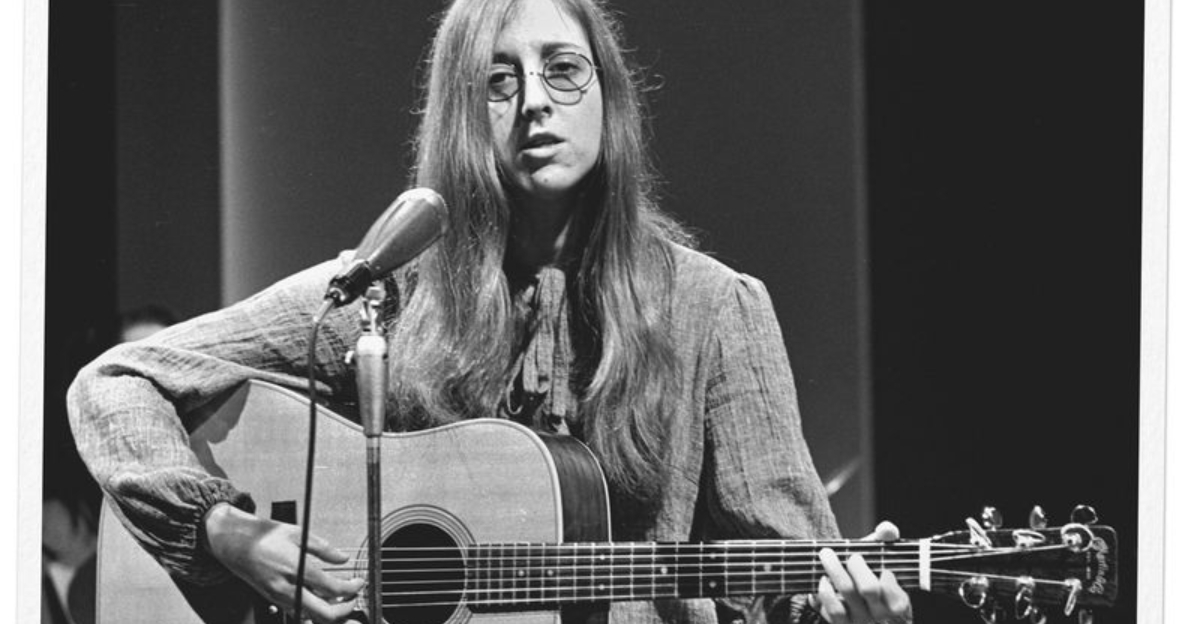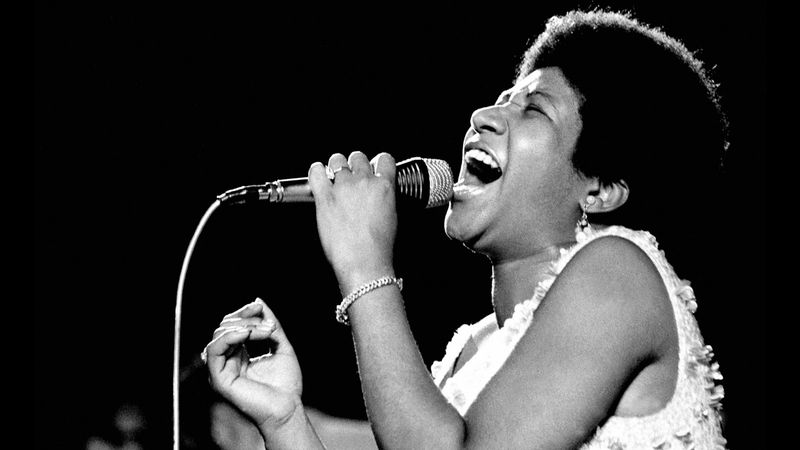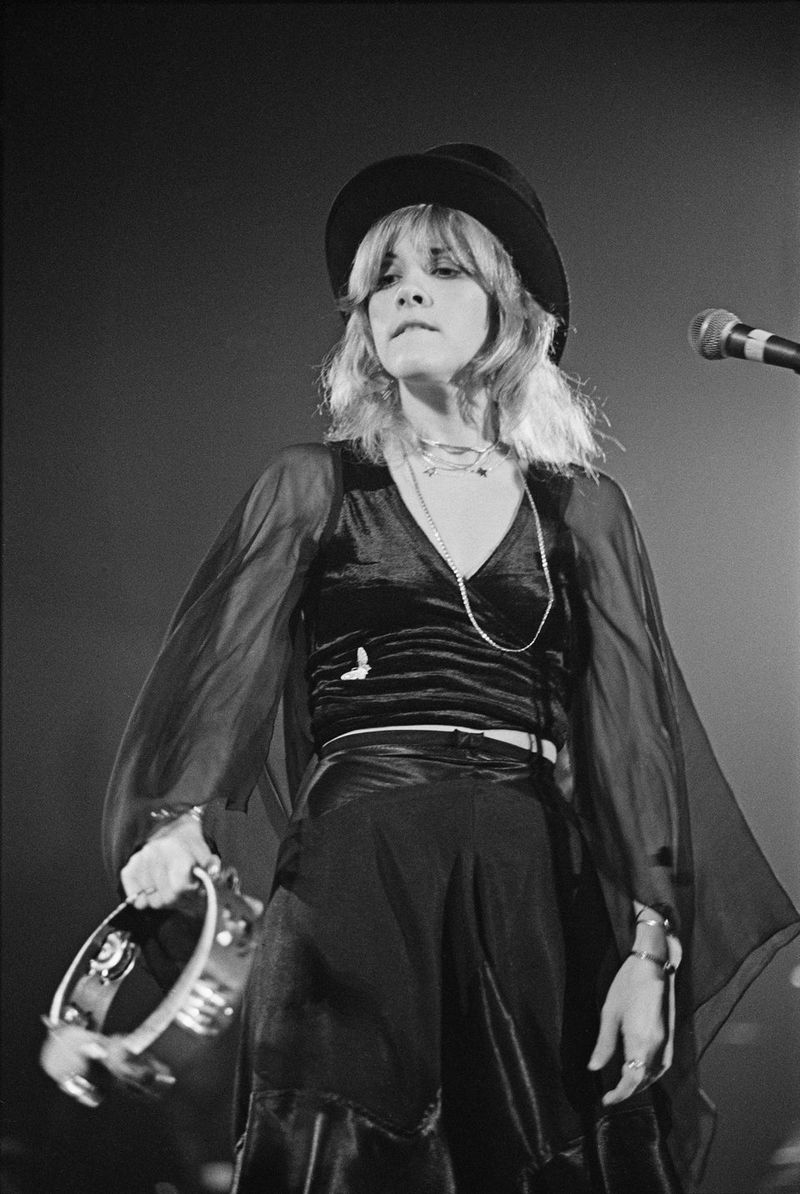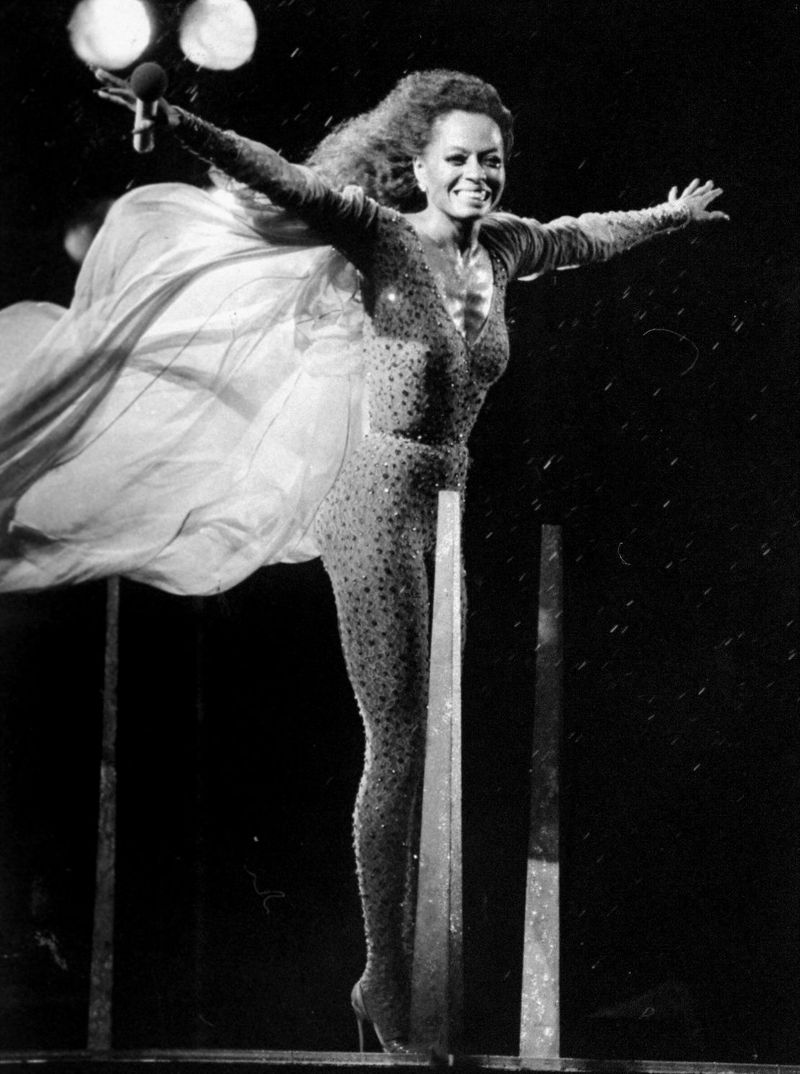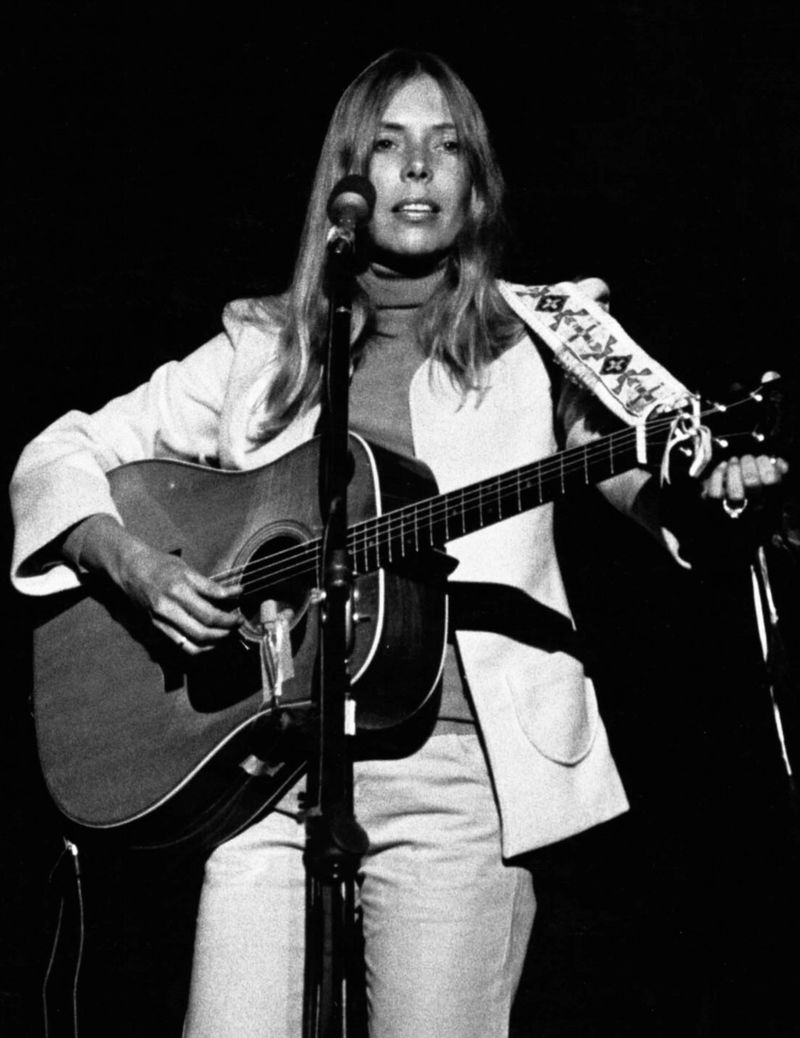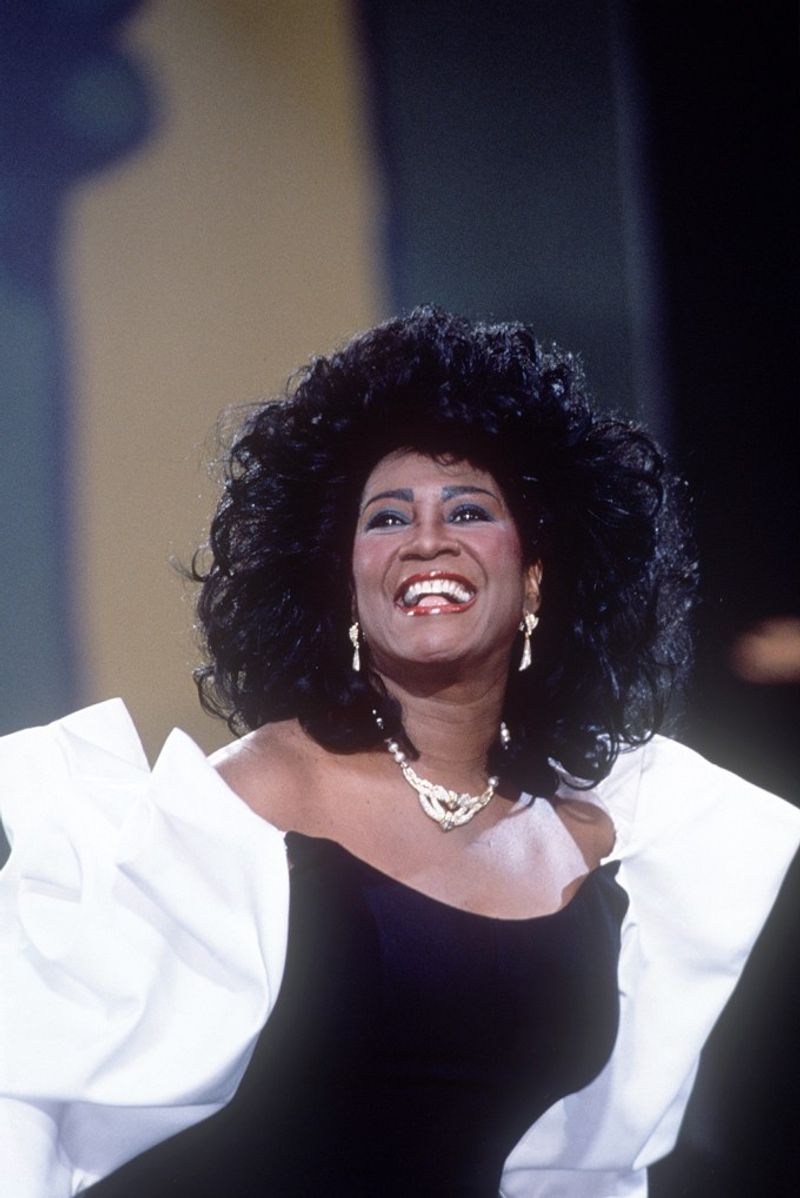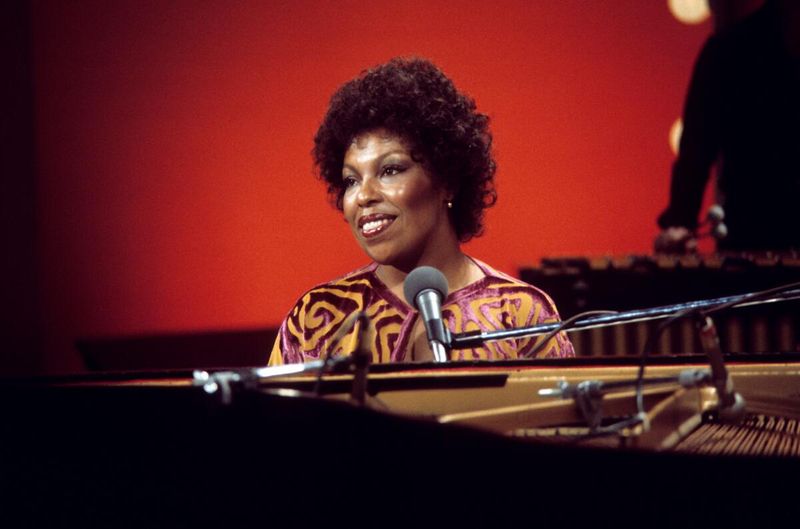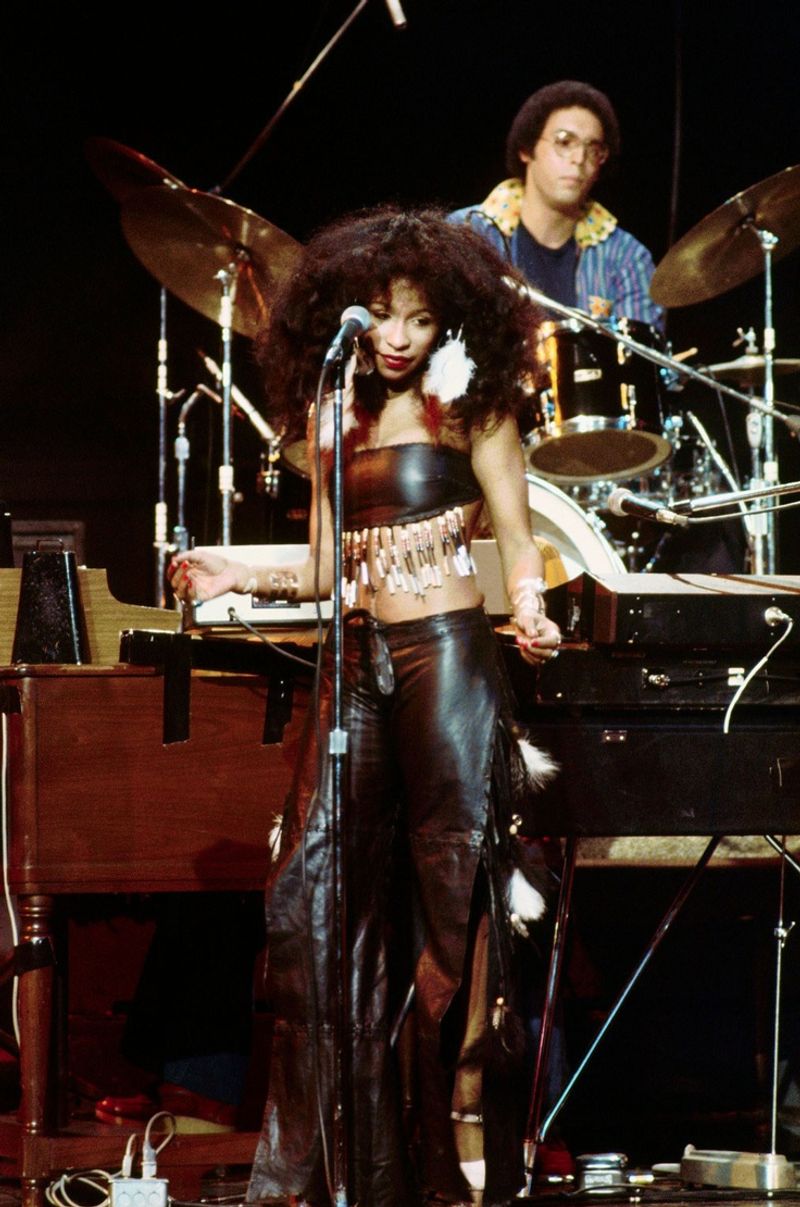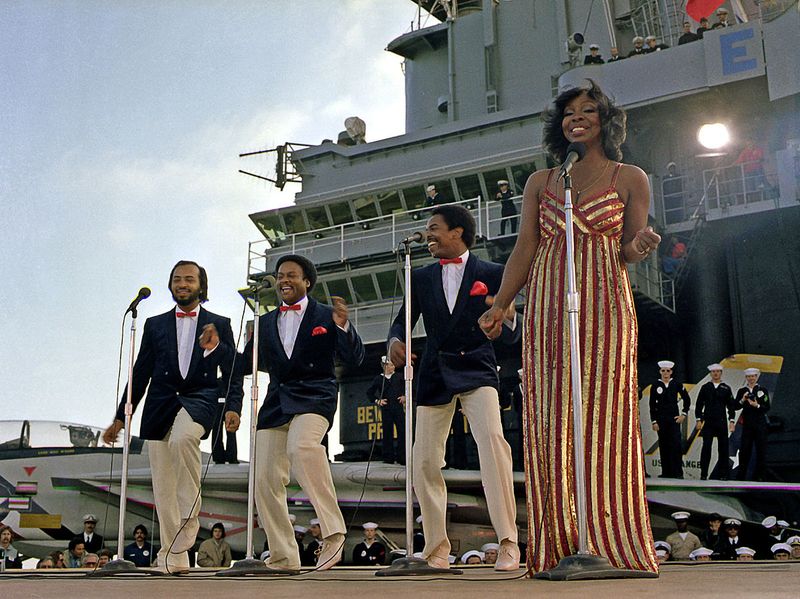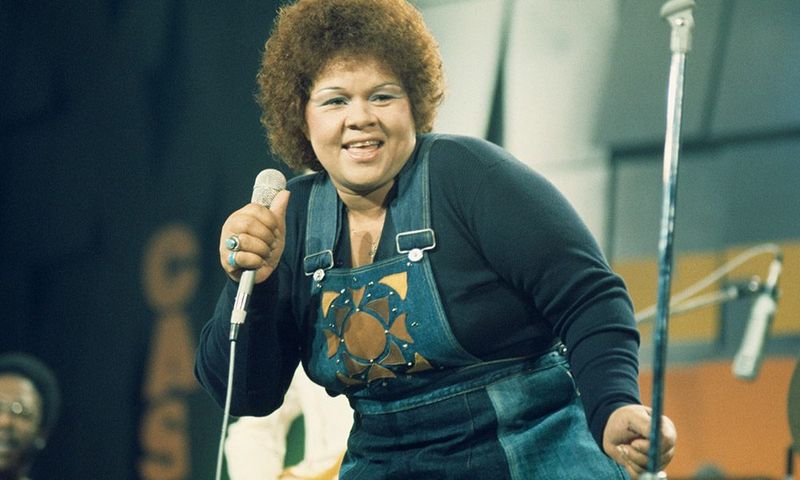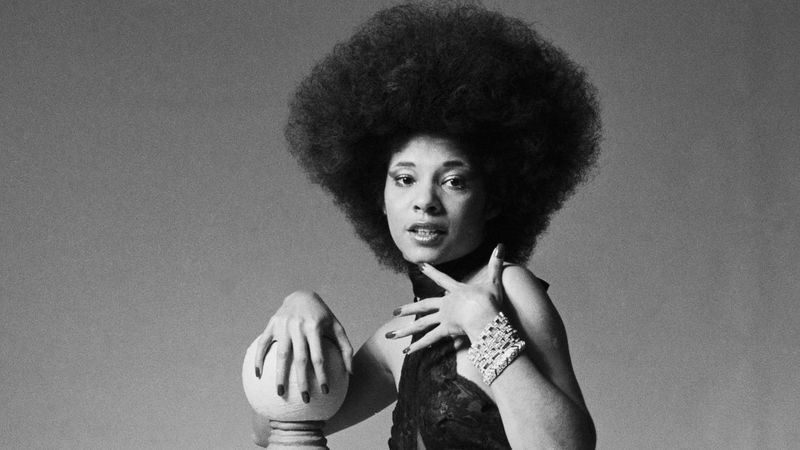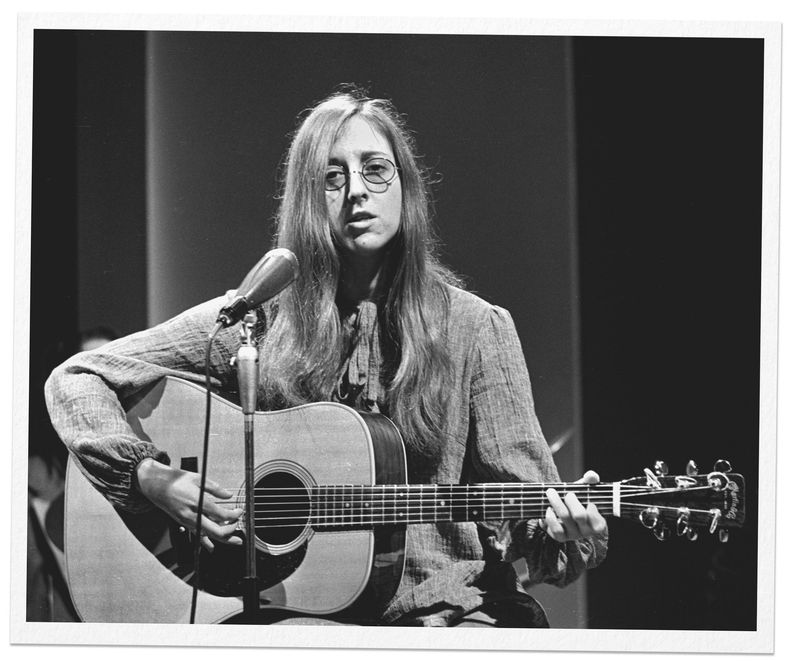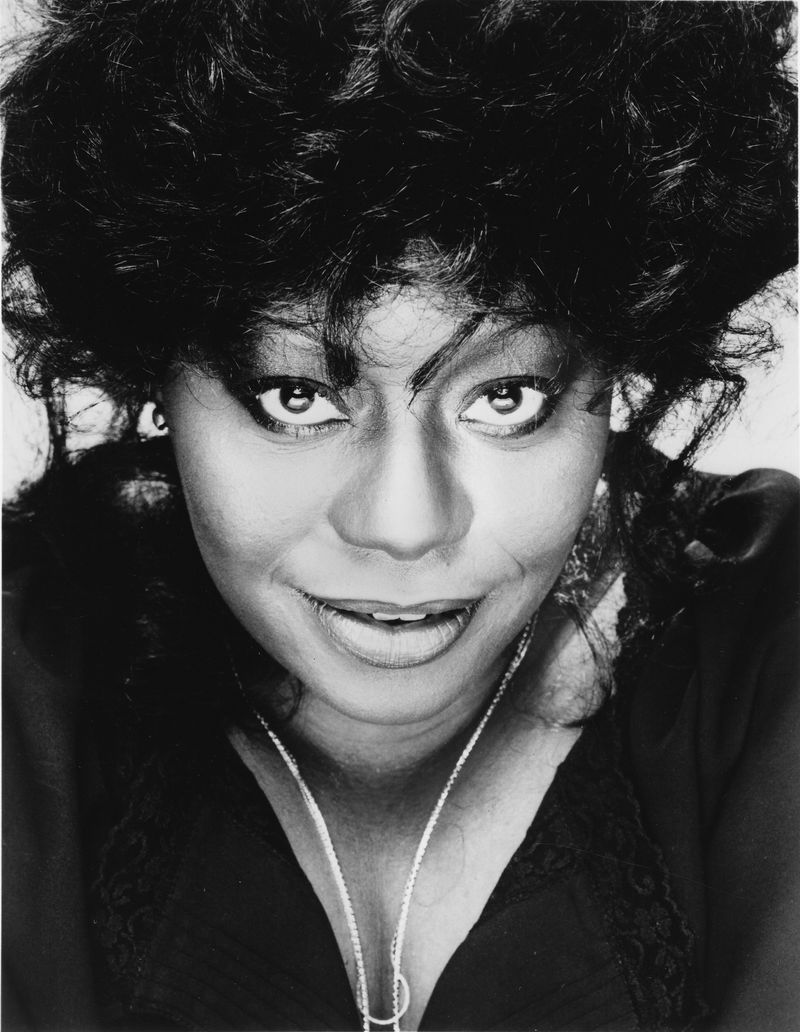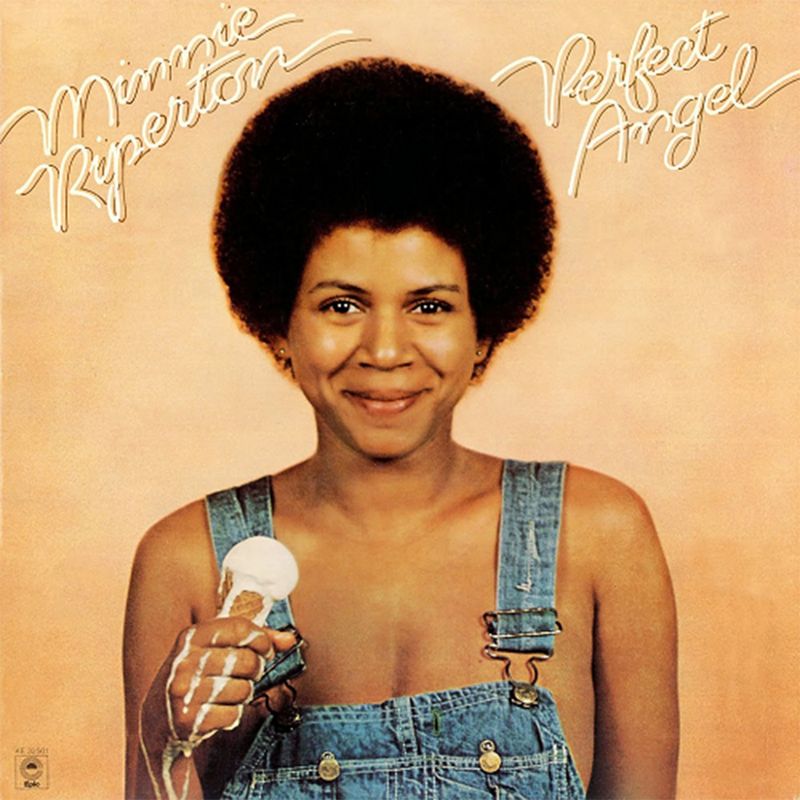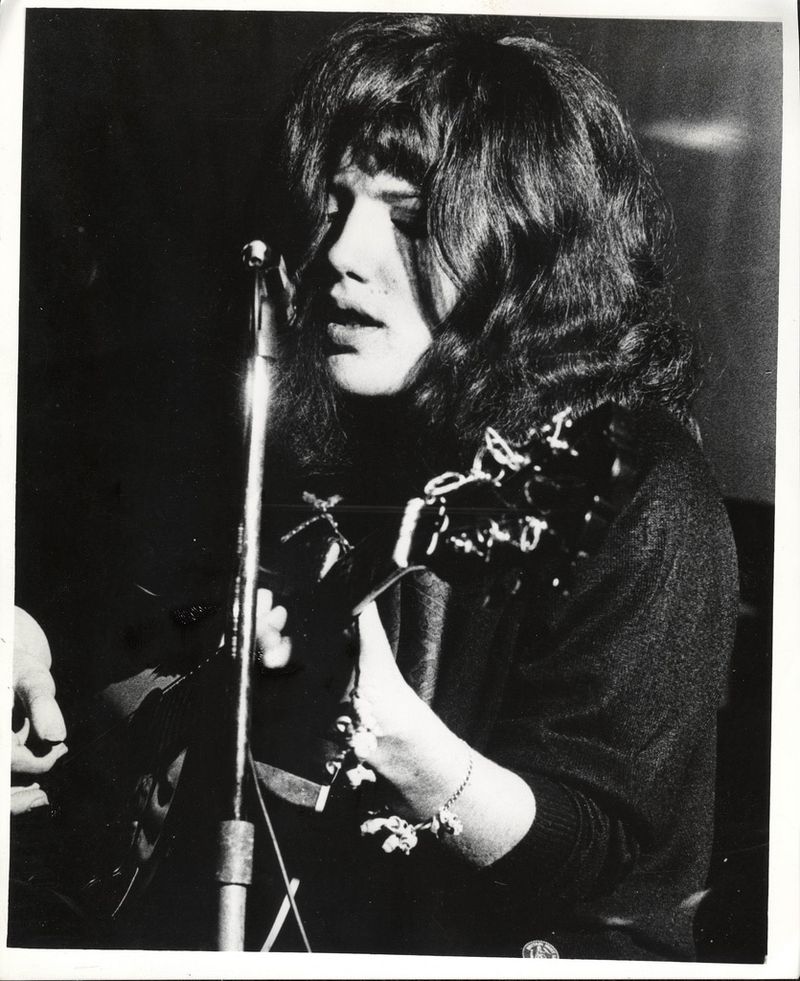The 1970s was a decade of musical revolution, and standing at the forefront were numerous female singers who defined the sound of a generation. From the soulful powerhouses and disco queens to the folk geniuses and punk-pop pioneers, these women left an indelible mark on music history. While many of these artists became household names, others remained hidden gems, only to be rediscovered decades later. This post explores both the celebrated icons and the overlooked talents of the 70s—a time when female artists were breaking barriers and defining new genres.
1. Aretha Franklin
Aretha Franklin, the undisputed “Queen of Soul,” captivated audiences with her powerful gospel-infused vocals. Her iconic hits, such as “Respect” and “Natural Woman,” became anthems of empowerment and resilience. With a voice that could convey raw emotion and an unparalleled ability to connect with listeners, Franklin’s influence extended beyond music. She became a symbol of civil rights and female empowerment in the 70s, inspiring generations to come. Franklin’s legacy is celebrated worldwide, ensuring her place in history as one of the greatest singers of all time. Did you know she was the first woman inducted into the Rock and Roll Hall of Fame?
2. Stevie Nicks (Fleetwood Mac)
Stevie Nicks, with her ethereal presence and haunting voice, became a defining figure of the 70s rock scene. As the enigmatic frontwoman of Fleetwood Mac, her songs “Rhiannon” and “Landslide” captured the mystique and emotional depth that fans adored. Nicks’ distinct style, characterized by flowing outfits and mystical themes, set her apart as a true rock icon. Her influence extended beyond music, shaping fashion and inspiring countless artists. Known for her witchy persona and charismatic stage presence, Nicks continues to enchant audiences today. Fun fact: She was often referred to as the “White Witch” of rock.
3. Diana Ross
Diana Ross, after leaving The Supremes, reigned as a solo superstar in the 70s. Her transition from Motown to disco saw hits like “Love Hangover” and “Ain’t No Mountain High Enough” topping the charts. Ross’s glamorous style and magnetic stage presence made her a true icon of the era. Beyond her music career, she ventured into acting, earning critical acclaim and further solidifying her legacy. Ross’s influence on pop culture remains profound, as she continues to inspire artists across genres. Did you know she was nominated for an Academy Award for her role in “Lady Sings the Blues”?
4. Donna Summer
Donna Summer earned her title as the “Queen of Disco” with an array of chart-topping hits like “Hot Stuff,” “Bad Girls,” and the revolutionary “I Feel Love.” Her music defined the disco era, blending pulsating beats with her powerful vocals. Summer’s influence went beyond the dance floor, as she became a symbol of the 70s nightlife and liberation. Her ability to capture the spirit of disco while pushing musical boundaries made her a trailblazer. Summer’s legacy continues to resonate, reminding us of a vibrant time when music and culture intertwined. Fun fact: “I Feel Love” was one of the first songs to use an entirely electronic backing track.
5. Joni Mitchell
Joni Mitchell, the poetic genius of folk music, left an indelible mark on the 70s with her introspective lyrics and innovative melodies. Her album “Blue” is often hailed as one of the greatest of all time, with tracks like “Big Yellow Taxi” showcasing her environmental advocacy. Mitchell’s ability to blend personal storytelling with universal themes resonated deeply with listeners. As an artist who constantly evolved, she defied musical boundaries, influencing generations of musicians. Known for her distinct voice and guitar playing, Mitchell remains a timeless figure in music history. Did you know she is a skilled painter as well?
6. Patti LaBelle
Patti LaBelle, with her dynamic vocals and electrifying stage presence, became a force in the 70s music scene. Whether as the lead singer of Labelle, with hits like “Lady Marmalade,” or in her solo endeavors, her voice was unparalleled. Known for her extravagant outfits and high-energy performances, LaBelle captivated audiences worldwide. She broke barriers with her bold fashion and powerful anthems, inspiring future generations of artists. Her ability to convey emotion through music made her a beloved figure in soul and R&B. Fun fact: Labelle was the first African American vocal group to land the cover of Rolling Stone magazine.
7. Janis Joplin
Janis Joplin’s raw and powerful voice made her one of the defining artists of her time, despite her career being tragically cut short. Known for her gritty performances and soulful style, Joplin’s posthumous album “Pearl” solidified her legacy. Her vulnerability and fierce spirit shone through tracks like “Cry Baby” and “Me and Bobby McGee.” Joplin’s influence on rock and blues is profound, as she challenged norms and inspired countless female artists. Her untimely death at 27 added to the mystique of her enduring legacy. Did you know her iconic Porsche was hand-painted with psychedelic designs?
8. Roberta Flack
Roberta Flack’s smooth and sophisticated sound made her a standout artist of the 70s. With hits like “Killing Me Softly with His Song” and “The First Time Ever I Saw Your Face,” Flack’s voice conveyed deep emotion and elegance. Her ability to interpret songs with sensitivity and grace captivated audiences across genres. Known for her classical training and unique style, Flack became a symbol of refinement in music. Her influence continues to be felt, as she paved the way for future generations of vocalists. Fun fact: “Killing Me Softly” was inspired by a young Don McLean performing “American Pie.”
9. Chaka Khan (Rufus & solo)
Chaka Khan, often referred to as the “Queen of Funk,” emerged as a dynamic force with Rufus in the 70s. Her powerful voice and charismatic presence made hits like “Tell Me Something Good” and “I’m Every Woman” timeless classics. Khan’s ability to blend funk, soul, and R&B set her apart, influencing countless artists. Known for her bold fashion choices and lively performances, she became an icon of empowerment and individuality. Her legacy continues to inspire new generations, as she remains a beloved figure in music history. Did you know she has won ten Grammy Awards over her career?
10. Linda Ronstadt
Linda Ronstadt’s versatile voice and country-rock style made her one of the best-selling artists of the 70s. With hits like “You’re No Good” and “Blue Bayou,” she showcased her ability to cross genres effortlessly. Ronstadt’s rich vocals and heartfelt interpretations resonated with a wide audience, earning her critical acclaim. Her influence extended beyond music, opening doors for female artists in a male-dominated industry. Known for her spirited performances and distinctive style, Ronstadt remains a beloved figure in music. Fun fact: She was part of the supergroup Trio with Dolly Parton and Emmylou Harris.
11. Gladys Knight
Gladys Knight, known as the “Empress of Soul,” captivated audiences with her rich and emotive voice. Alongside the Pips, she delivered soulful hits like “Midnight Train to Georgia” and “If I Were Your Woman.” Knight’s ability to convey emotion through music made her a beloved figure in soul and R&B. Her elegant stage presence and heartfelt performances resonated with fans worldwide. Knight’s influence on music is enduring, as she paved the way for future generations of vocalists. Did you know she won a Grammy for “Neither One of Us (Wants to Be the First to Say Goodbye)”?
12. Debbie Harry (Blondie)
Debbie Harry, as the frontwoman of Blondie, became a defining figure of punk-pop in the 70s. Her edgy style and cool charisma set her apart, making hits like “Heart of Glass” and “Call Me” iconic. Harry’s ability to blend punk, rock, and pop revolutionized the music scene, influencing countless artists. Known for her bold fashion choices and dynamic performances, she became a symbol of the era’s rebellious spirit. Harry’s legacy endures as she continues to inspire new generations of musicians. Fun fact: Blondie was one of the first bands to incorporate elements of hip-hop into their music.
13. Etta James
Etta James, a blues and R&B legend, left an indelible mark on the 70s music scene. Her powerful voice and emotional delivery made songs like “At Last” and “I’d Rather Go Blind” unforgettable. James’s ability to convey deep emotion and raw passion resonated with audiences worldwide. Her influence extended beyond blues, as she inspired artists across genres. Known for her commanding stage presence and soulful interpretations, James remains a timeless figure in music history. Did you know she was inducted into the Rock and Roll Hall of Fame in 1993?
14. Betty Davis
Betty Davis, the wild rebel of funk, captivated audiences with her fearless style and raw energy. Her music, including tracks like “If I’m In Luck I Might Get Picked Up,” challenged norms and pushed boundaries. Despite being married to Miles Davis, she carved her own path in the music world. Davis’s influence on funk and rock remains profound, as her bold persona inspired many. Her work, though overshadowed at the time, has been rediscovered and celebrated in recent years. Fun fact: She was known for her striking style and bold fashion statements that set her apart.
15. Judee Sill
Judee Sill, a genius of folk music, left a lasting legacy despite her tragically short life. Her songs, like “Jesus Was a Cross Maker,” showcased her unique blend of folk, classical, and gospel influences. Sill’s introspective lyrics and haunting melodies resonated with a devoted fanbase. Although she faced struggles in her personal life, her work was rediscovered and celebrated decades later. Known for her gentle voice and poignant storytelling, Sill remains an influential figure in music history. Did you know she was the first artist signed to David Geffen’s Asylum label?
16. Loleatta Holloway
Loleatta Holloway, disco’s secret weapon, dazzled audiences with her powerful voice and vibrant energy. Her track “Love Sensation” became a staple of the disco era and was later sampled in numerous house tracks. Holloway’s ability to convey emotion through her music made her a standout performer. Despite not achieving mainstream fame during her time, her influence on the music scene remains significant. Known for her dynamic stage presence and soulful delivery, she continues to be celebrated by fans and musicians alike. Fun fact: Her vocals in “Love Sensation” were famously sampled in the hit “Ride on Time.”
17. Minnie Riperton
Minnie Riperton, known for her remarkable five-octave vocal range, became a standout artist of the 70s. Her hit “Lovin’ You” showcased her ability to blend soul and pop with a unique touch. Riperton’s album “Perfect Angel,” co-written with Stevie Wonder, remains a masterpiece. Her gentle voice and emotional delivery resonated deeply with listeners, leaving a lasting impact. Despite her untimely death, Riperton’s legacy endures as she continues to inspire artists. Fun fact: She was a spokesperson for the American Cancer Society, raising awareness about breast cancer.
18. Bridget St. John
Bridget St. John, British folk’s best-kept secret, captured hearts with her gentle and introspective songwriting. Her tracks like “Ask Me No Questions” showcased her unique voice and poetic lyricism. Despite not achieving mainstream success, St. John’s music resonated with dedicated fans and influenced future folk artists. Known for her serene presence and heartfelt delivery, she remains an influential figure in the folk genre. Her collaborations with fellow musicians further enriched her legacy. Did you know she was adored by legendary DJ John Peel, who championed her music extensively?
